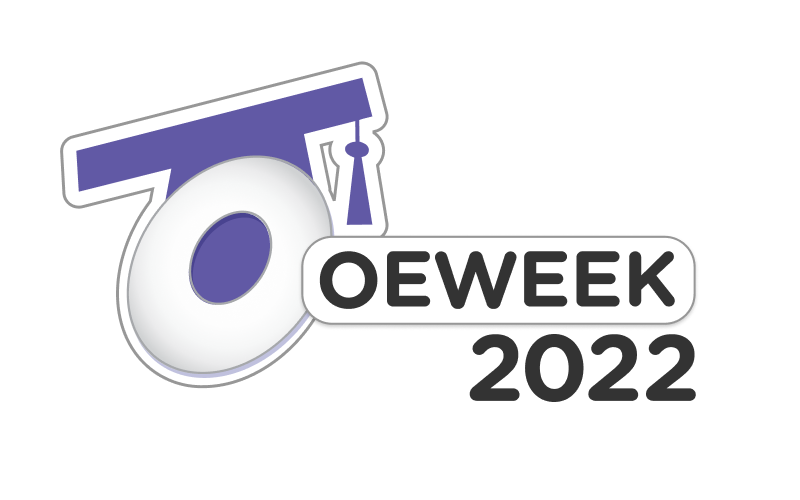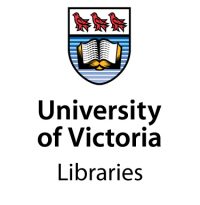 Open Education Week 2022 is being held internationally from March 7-11. It is celebrated every year as a community-built forum to raise awareness and highlight innovative Open Education successes worldwide. It was first launched by Open Education Global in 2012.
Open Education Week 2022 is being held internationally from March 7-11. It is celebrated every year as a community-built forum to raise awareness and highlight innovative Open Education successes worldwide. It was first launched by Open Education Global in 2012.
OE Week gives practitioners, educators, and students the chance to learn more about open educational practices and be inspired by the amazing work that is being done by the community across the world.
What is Open Education?
According to a definition from Opensource.com, Open Education is a philosophy about how individuals should generate, distribute, and build on knowledge. Open education advocates believe that everyone around the globe should have access to excellent educational experiences and materials, and they strive to remove obstacles to that aim. High monetary costs, outdated or expired resources and legal restrictions that limit collaboration between students and educators are examples of such hurdles. A collection of different definitions of Open Education can be found here.
Which core concepts behind Open Education bring the idea to life?
- Open Educational Resources (OER) are learning, teaching, and sometimes research resources that have been published under an open license (such as Creative Commons) or that are part of the public domain. No technological or copyright-related barriers should exist to freely reuse, revise, remix, retain, and redistribute OERs (the 5Rs).
While the roots of OER reach back further, the term was established during a UNESCO forum in 2002. To this day, UNESCO remains one of the most important contributors to the evolution of OER and has issued its Recommendation on Open Educational Resources, which is the world’s only international framework for establishing norms in this field. Promoting Open Education, especially OER, is also part of UNESCO’s efforts to meet the United Nations Sustainability Goals. Find the UNESCO definition for OER and detailed information on their commitment in that area here. - Open Pedagogy is a concept that aims to open up the entire teaching, learning, and study experience, not only through the use of OERs but also by challenging established methods of knowledge creation. By using dynamic, open, and innovative methods, students, hand-in-hand with instructors, liberate themselves from the role of passive consumers of lectured “chalk and talk” content and become an active part of the educational process, for example by creating a textbook together with their instructor over the course of a semester.
It is important to note that the Open Education movement did not invent alternative pedagogical approaches but can draw on many groundbreakers in this area. What is new in this context are the chosen methods and the strong association with the Open philosophy.
What are Indigenous perspectives on Open Education? Which resources address the relationship between Indigenous ways of Teaching, Learning and Knowing and Open Education?
Indigenous ways of knowledge building and sharing can be fundamentally different from Western approaches. The desire to (re)open access to knowledge and education for all only emerges from a predicament created by a Western claim to education and educational resources as a potentially marketable good and means of gaining distinction and power, which may not necessarily be found in Indigenous practices around knowledge creation, retention, and sharing.
The white paper Community First: Open Practices and Indigenous Knowledge by Skylee-Storm Hogan and Krista McCracken offers a first perspective on the relationship between Open Education and Indigenous Knowing and emphasizes that this relationship needs to be reflected on more, as the Open Education movement gathers momentum around the world.
UBC hosted The 6R’s of Indigenous OER: Re-imagining OER to Honour Indigenous Knowledge and Sovereignty, an online talk about the relation of Indigenous Knowledge Systems and OER on March 10 as part of OE Week. Find the recording of that session here.
Pulling Together: A Guide for Curriculum Developers by Asma-na-hi Antoine, Rachel Mason, Roberta Mason, Sophia Palahicky, and Carmen Rodriguez de France is a companion on the Indigenization of curricula and other educational contexts, that was developed as a collaboration between Royal Roads University, University of Victoria, and Arrive Consulting. It is part of the Pulling Together series, a set of professional learning guides stemming from a project on the Indigenization of post-secondary institutions in B.C.
The series is available as OER in the BCcampus Open Textbook Collection, each in a variety of formats.
What role does Open Education play in the UVic community?
Awareness of and advocacy for Open Education is widespread among stakeholders on UVic Campus.
- An overview of Open Education and Open Educational Resources (OER) is being provided by the Office of Scholarly Communications at Uvic Libraries.
- UVic awards OER grants, to foster the adoption, adaptation or creation of Open Educational Resources (OERs). The aim is to replace existing textbooks or other educational resources with OERs that will be useable not just at UVic, but other post-secondary institutions, bringing down prohibitive barriers like high cost along the way.
- The University of Victoria Student’s Society (UVSS) is providing a template for an advocacy letter, ready to be sent out to professors and lecturers to inform them about the benefits of OER. Read more about the initiative here.
Where can resources around Open Education be found?
- UVic Libraries host an increasing number of open books on UVicSpace, curates an overview of sources for OER, advocates for OER in subject based Libguides and offers support with any OER related project
- OpenCampus BC provides an ever-growing collection of OER
- A good starting point for more information on Open Pedagogy is The Open Pedagogy Notebook
- The UVic Bookstore maintains a list of sources for OERs
- Detailed overviews of sources for OER are being offered by the Libraries of the University of Reno, Nevada, and by Creative Commons
Events for Open Education Week
The OE Week website lists a large number of events being organized around the globe.
Events hosted in BC, sometimes with a provincial focus, are being listed on the BC Campus website. Some archived events of note include:
- A conversation about OER quality (Athabasca University)
- An introductory discussion of open licensing (Athabasca University)
- Making OER count: Incorporating OER into the Tenure and Promotion Process
This blogpost was created adapting material from the following sources, which are licensed under a Creative Commons license:
